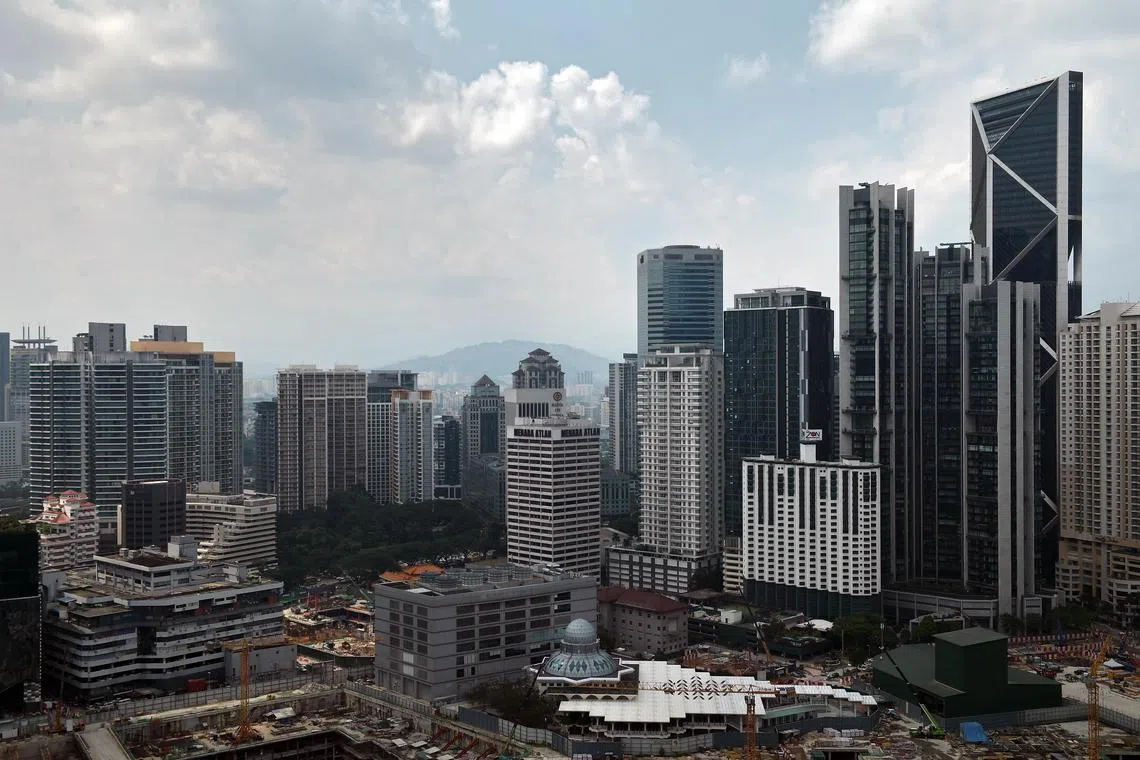Malaysia widens growth forecast amid rising global uncertainties
Sign up now: Get ST's newsletters delivered to your inbox

Gross domestic product may now quicken to between 4 per cent and 5 per cent this year.
ST PHOTO: KUA CHEE SIONG
KUALA LUMPUR – Malaysia revised its economic growth outlook for 2023 to allow for a broader forecast range, as policymakers took stock of persistent price pressures and an unpredictable global economy that could hurt the trade-reliant nation.
Gross domestic product may now quicken to between 4 per cent and 5 per cent in 2023, according to Bank Negara Malaysia (BNM) on Wednesday. The new band makes room for both the government’s earlier estimate of 4.5 per cen
“We anticipate that the environment moving forward will remain challenging as we continue to face risks from increasing geopolitical conflict, elevated price pressures and tighter financial conditions,” BNM governor Nor Shamsiah Yunus said in the foreword of its 2022 annual report.
The forecast reaffirms Malaysia’s confidence that its economy is nowhere close to entering a recession – even as the projection is a far cry from the 8.7 per cent year-on-year expansion posted in 2022.
“The risks to Malaysia’s economic growth are fairly balanced,” the bank said in its economic and monetary review 2022 that was released alongside the annual report.
It expects domestic demand to anchor Malaysia’s economic advance through the external volatility. Still, elevated living and input costs could impact households’ and businesses’ spending behaviour, BNM noted, highlighting the balancing act it faces between supporting growth and taming inflation.
BNM sees price pressures averaging between 2.8 per cent and 3.8 per cent in 2023, affirming the government’s forecast. Headline inflation is expected to moderate throughout 2023, the bank said.
Even so, core and headline inflation will remain elevated for several months, and the outlook is uncertain and tilted to the upside, it added.
Malaysia’s consumer prices remained unchanged for a second month in February at 3.7 per cent from a year earlier, driven by rising costs of food and hospitality.
Prime Minister Anwar Ibrahim’s administration is exploring both short- and long-term solutions to help people tide over higher costs, from RM5 (S$1.50) meal deals in participating restaurants to policies encouraging wage growth.
The government is also planning to allow Employees Provident Fund members to use their retirement savings as “support” to apply for loans at below-market interest rates, the Finance Ministry said last week.
On the central bank’s part, its monetary policy will remain supportive of sustainable economic expansion while ensuring an environment of price stability.
“We remain watchful over the persistency of price pressures,” said Ms Shamsiah in the report. “Our near-term strategy is to ensure that the overnight policy rate remains at an appropriate level to manage inflationary pressures, which will allow us to achieve sustainable growth over a longer term.”
BNM earlier this month left its benchmark interest rate unchanged, after having been the first in the region to pause tightening in 2023.
It reiterated it would continue to assess the cumulative impact of the past 100 basis points of hikes as well as the impact of evolving conditions on the local inflation and growth outlook. BLOOMBERG


